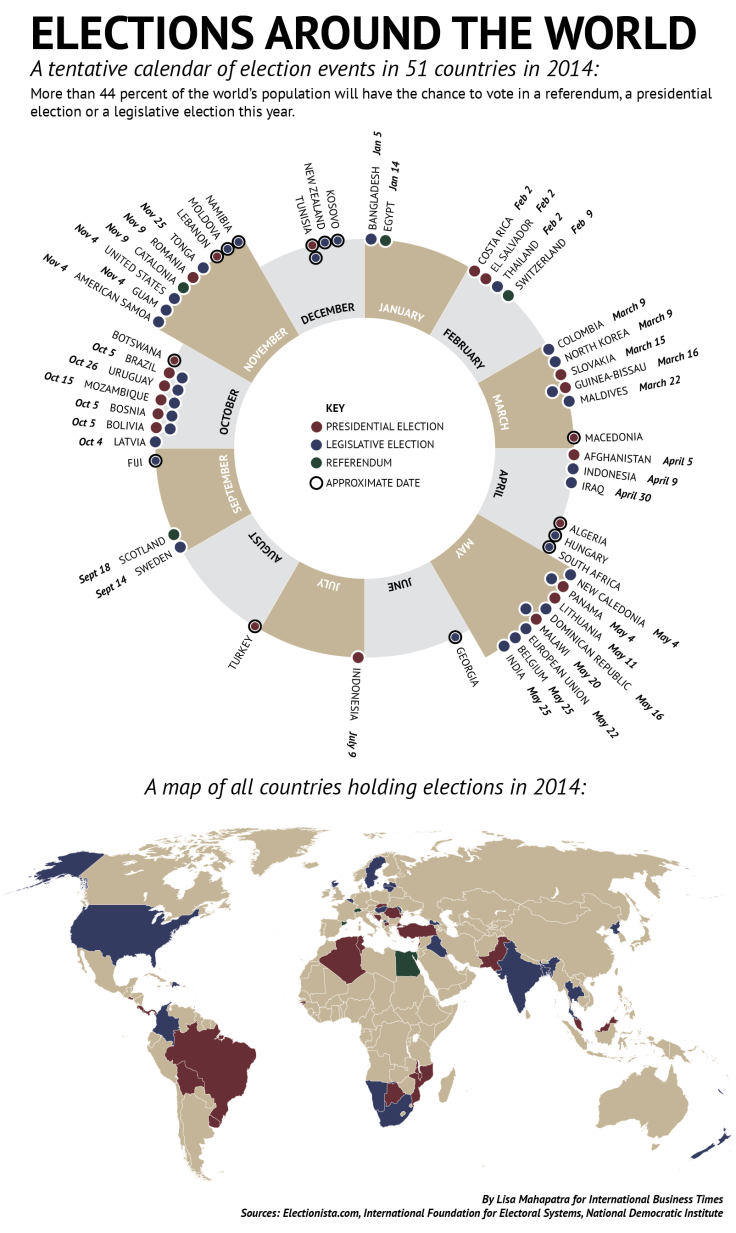Election Year: More Than 44 Percent Of The World’s Population Will Have The Chance To Vote In 2014 [CHART]
The first democratically held election of this year, in Bangladesh, didn’t go so well. Only 22 percent of the voting-age population cast a vote, a steep decline from the last election’s voter turnout of 87 percent. Animosity between Bangladesh’s two primary political parties reached a peak, and one of the them, the Bangladesh Nationalist Party, boycotted the vote as their demand for a nonpartisan government overseer was not met.
Voting is under way in the second election of the year -- a referendum in Egypt that will approve (or not) a revised constitution proposed by military chief Abdel-Fattah el-Sisi, as part of his bid for the presidency.
This year will also see Turkey’s first directly elected president and Fiji’s first democratic parliamentary elections.
A parliamentary “election” will also be held in North Korea, during which the country’s current leader, Kim Jong Un, will likely replace aging legislators with younger ones who are more loyal to him. North Korea’s parliamentary elections, which are usually held every five years, are a highly staged process and just a formality.
Elections will be held in 50 countries and for the European Union parliament, representing 44.4 percent of the world’s population. The combined GDP of all these nations accounts for more than half the world’s GDP. Here’s a roundup of the countries that will be voting in a referendum, legislative or presidential election this year:

Sources: Electionista.com, International Foundation for Electoral Systems, National Democratic Institute
© Copyright IBTimes 2024. All rights reserved.






















